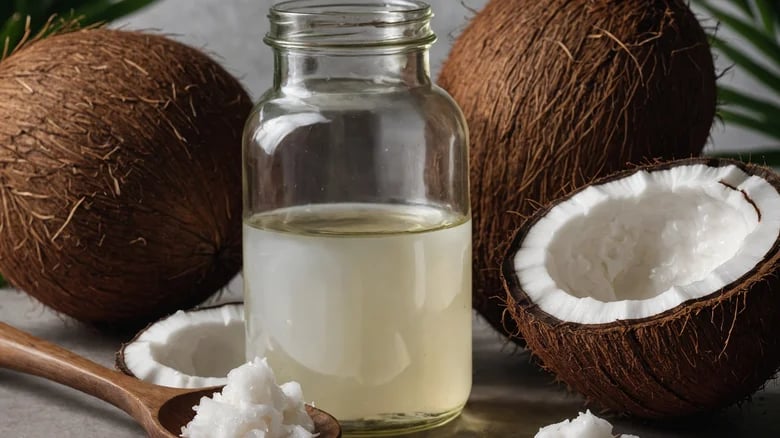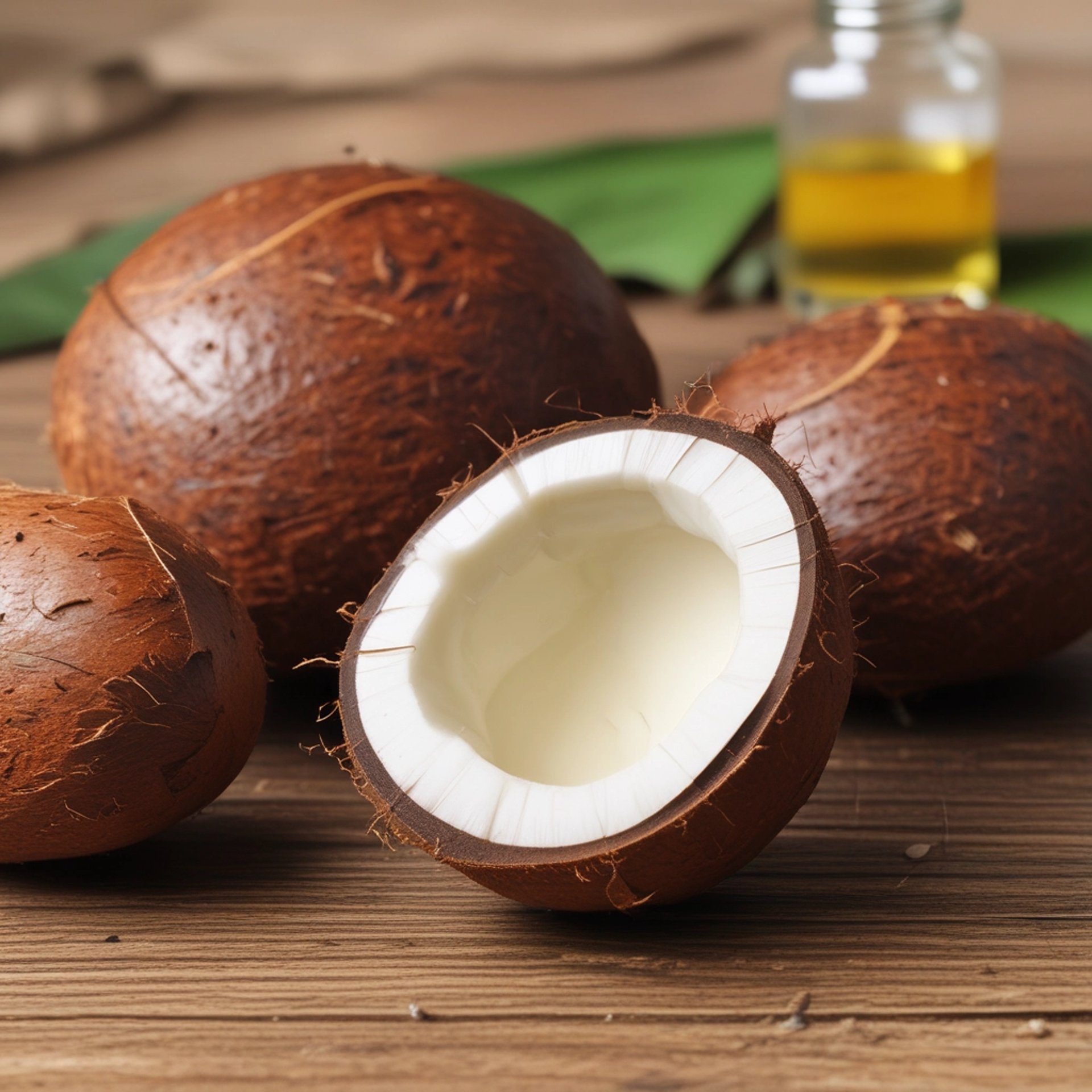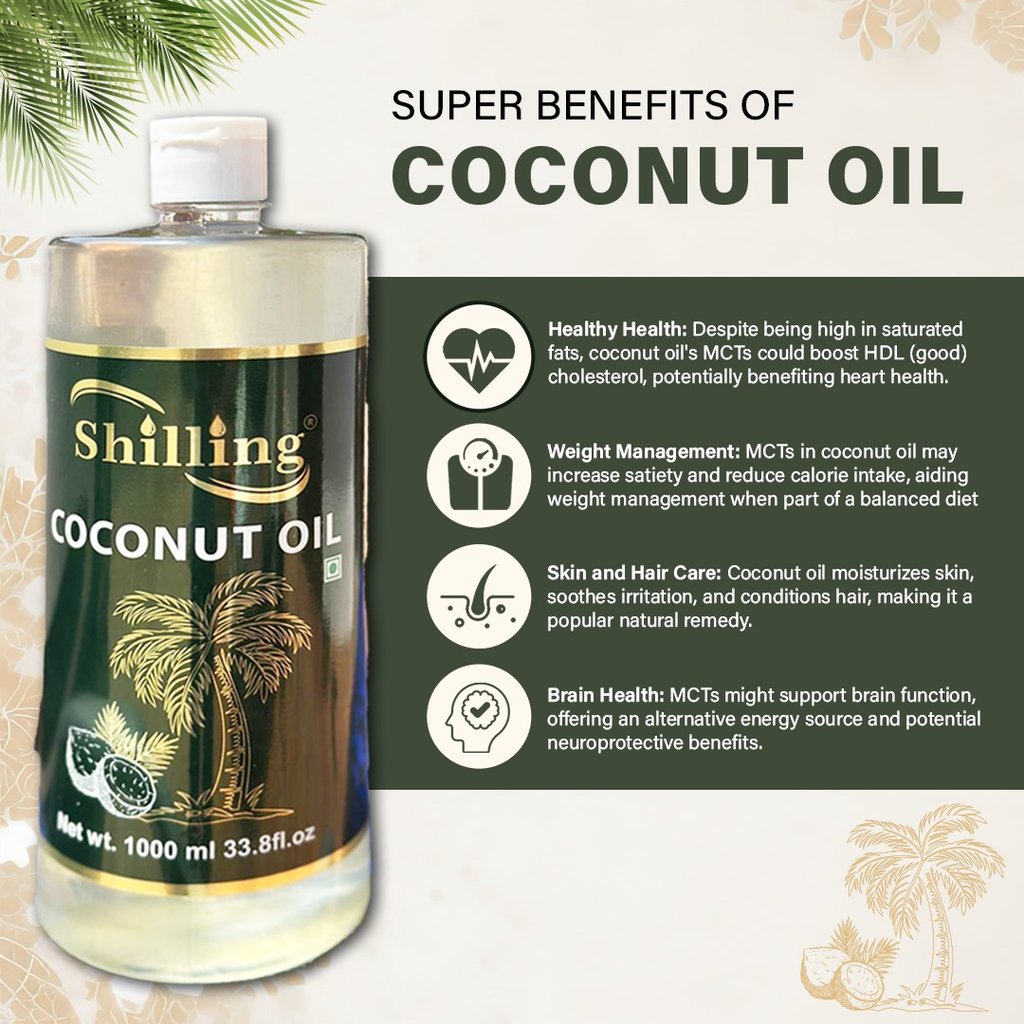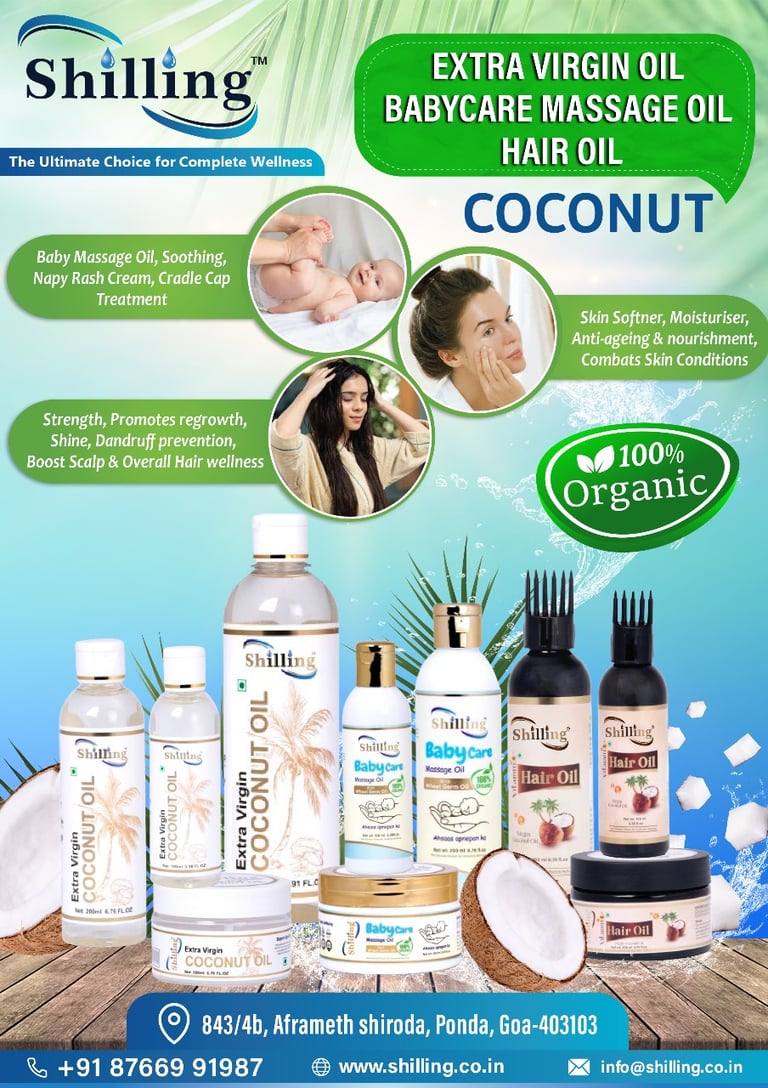Virgin Coconut Oil vs Refined Coconut Oil: What's the Difference?
Coconut Oil
Coconut oil has gained immense popularity over the past few years, becoming a staple in many kitchens around the globe. This versatile oil, derived from the fruit of the coconut palm, is treasured for its unique flavor and myriad uses, particularly in cooking and baking. Nutritionally rich and packed with medium-chain triglycerides (MCTs), it offers a range of health benefits, making it a favored choice for health-conscious individuals.
One of the most notable attributes of coconut oil is its ability to serve as a cooking oil. Its high smoke point allows it to withstand cooking temperatures without breaking down, making it suitable for various cooking methods, including frying and sautéing. Furthermore, with its distinctive tropical aroma and taste, it can enhance the flavor profile of many dishes, from curries and stir-fries to baked goods. Many chefs and home cooks alike appreciate coconut oil for its ability to impart a subtle sweetness, seamlessly complementing both savory and sweet recipes.
In addition to being an excellent cooking oil, coconut oil is frequently used as a substitute for other fats in recipes. Whether replacing butter in baking or serving as a base for salad dressings, its creamy texture and natural properties make it a versatile ingredient. Beyond culinary applications, coconut oil has also found its place in skincare, with many people utilizing it for its moisturizing benefits, further highlighting its multifunctional nature.
As we delve deeper into the differences between virgin and refined coconut oil, it is crucial to recognize the unique characteristics each type possesses, which can significantly impact their suitability for specific culinary and health-related uses.
What is Virgin Coconut Oil?
Virgin coconut oil is a natural oil extracted from fresh coconut meat, renowned for its distinctive flavor, aroma, and numerous health benefits. Unlike refined coconut oil, which undergoes extensive processing, virgin coconut oil is produced through methods that retain the oil's inherent qualities. The process of extraction typically involves either the cold-pressing technique or wet-milling method, both of which preserve the nutritional integrity of the oil.
In the cold-pressing method, fresh coconut meat is mechanically pressed to obtain the oil, ensuring minimal exposure to heat. This technique allows the oil to maintain its rich flavor and aromatic profile, making it an excellent choice for culinary applications, such as sautéing, baking, and dressings. On the other hand, the wet-milling method involves grating the coconut meat and mixing it with water, after which the mixture is heated. The oil separates from the coconut milk and can be further extracted, providing a slightly different flavor and texture compared to the cold-pressed variant.
One of the defining characteristics of virgin coconut oil is its unrefined nature, which enables it to retain beneficial compounds like medium-chain triglycerides (MCTs). These MCTs are known for their potential health benefits, including improved metabolism and enhanced energy levels. Additionally, virgin coconut oil contains antioxidants and has antimicrobial properties. Due to these qualities, it is often favored not only in cooking but also in skincare and haircare products, offering a versatile application range.
With its rich taste and potential health benefits, virgin coconut oil stands out as a premium choice among oils. As consumers become more discerning about the quality and source of their food products, virgin coconut oil's natural extraction methods and culinary appeal continue to make it a popular option for health-conscious individuals.
What is Refined Coconut Oil?
Refined coconut oil undergoes a distinct processing method that sets it apart from virgin coconut oil. The refinement process typically starts with dried coconut meat, also known as copra, which is extracted from mature coconuts. This meat is then subjected to various treatment methods including mechanical and chemical processes, aimed at removing impurities and enhancing the oil's shelf life. The end product of this meticulous process is a clear, odorless oil with significantly less flavor compared to its virgin counterpart.
One of the major differences between refined and virgin coconut oil lies in their production techniques. While virgin coconut oil is extracted through mechanical cold-press methods, preserving the natural flavor and nutrients, refined coconut oil often uses heat, chemicals, or both to extract the oil from copra. This not only alters its flavor profile but also reduces the concentration of certain antioxidants and beneficial compounds present in the virgin variant. Consequently, refined coconut oil is often considered a more versatile option for cooking applications, particularly in situations where a neutral-tasting oil is desired.
Refined coconut oil is ideal for high-heat cooking, such as frying and baking, due to its higher smoke point, which is around 400°F (204°C). This makes it a suitable choice for those who prefer not to impart the distinct taste of coconut into their dishes. Additionally, refined coconut oil is often used in various cosmetic and personal care products, capitalizing on its light texture and absence of strong scent. In culinary contexts, it provides a neutral baseline that allows other flavors to shine without interference, making it a popular option for chefs and home cooks alike.
Comparing Nutritional Profiles
The nutritional profiles of virgin and refined coconut oil differ significantly, impacting their health benefits and culinary uses. Virgin coconut oil is derived from fresh coconut meat through minimal processing, helping to preserve its natural compounds. This type of oil contains a higher concentration of antioxidants and essential fatty acids, including lauric acid, which is reputed for its antimicrobial properties. The presence of these beneficial compounds not only contributes to its distinctive flavor but also enhances its nutritional value, making virgin coconut oil a popular choice among health-conscious consumers.
On the other hand, refined coconut oil is extracted from dried coconut meat and undergoes intensive processing, which typically includes bleaching and deodorizing. As a result, refined coconut oil has a more neutral flavor and higher smoke point, making it suitable for high-temperature cooking. However, this processing can strip away many of the healthy compounds found in virgin coconut oil, such as antioxidants and certain nutrients. While refined coconut oil is still a source of medium-chain triglycerides, the lesser quantity of phenolic compounds can reduce its potential health benefits compared to its virgin counterpart.
Additionally, the metabolic effects of these oils may vary due to their distinct compositions. Studies suggest that virgin coconut oil may aid in improving cholesterol levels, supporting heart health, and helping with weight management due to its fat content. Conversely, refined coconut oil, while still a calorie-dense option, lacks some of these potential benefits due to its more processed nature. In summary, while both types of coconut oil can be utilized in cooking and are versatile ingredients, the nutritional difference favors virgin coconut oil for those seeking a more healthful choice.
Culinary Uses: When to Use Each Type
Coconut oil has gained significant popularity in culinary practices, particularly in vegan and healthier eating circles. There are two primary types: virgin coconut oil and refined coconut oil, each suited for different cooking needs and flavor profiles. Understanding their distinct qualities can enhance your culinary experiences and health benefits.
Virgin coconut oil is derived from fresh coconut meat and retains a natural coconut flavor and aroma. It is ideal for recipes where the coconut flavor complements the dish. For example, using virgin coconut oil in baked goods such as cookies, cakes, or muffins can provide a delightful tropical twist. Additionally, it works exceptionally well in salad dressings, smoothies, and as a finishing oil for sautéed vegetables. However, due to its lower smoke point of approximately 350°F (175°C), it is best reserved for low to medium-heat cooking.
Refined coconut oil, on the other hand, undergoes a process that removes much of its flavor and aroma while also raising its smoke point to about 400°F (204°C). This makes refined coconut oil a versatile choice for high-heat cooking methods, including frying and roasting. It can be used in stir-fries, curries, and baked dishes where the coconut flavor is not the main focus. Its subtle taste allows it to blend seamlessly into savory meals, making it an excellent option for recipes that require a neutral oil.
In addition to their cooking properties, health considerations play a vital role in choosing between these oils. Virgin coconut oil is packed with antioxidants and medium-chain triglycerides (MCTs), making it beneficial for health-conscious consumers. Refined coconut oil, while still a healthier fat choice compared to other oils, lacks some of the benefits found in its virgin counterpart. Ultimately, knowing when to use each type of coconut oil can significantly elevate your cooking, allowing you to create dishes that are both flavorful and nutritious.
Storage and Shelf Life
Understanding the proper storage methods for both virgin and refined coconut oil can significantly impact their shelf life and quality. Virgin coconut oil is less processed and retains more of its natural nutrients and flavor, hence it is crucial to store it correctly. It is advisable to keep virgin coconut oil in a cool, dark place, away from direct sunlight and heat, as these factors can accelerate the rate of oxidation and lead to rancidity. Use an airtight container to minimize exposure to air, which can also contribute to spoilage.
Refined coconut oil, while having a longer shelf life due to its processing, should still be stored properly. Similar to virgin coconut oil, it is best placed in a cool location and kept sealed in its container. Refined oil's heat tolerance allows it to withstand higher temperatures, but maintaining a consistent temperature is vital to preserving its integrity over time.
The shelf life of both types of coconut oil can vary. Generally, virgin coconut oil has a shelf life of about 18 to 24 months, while refined coconut oil may last roughly 24 months or longer. Despite these estimates, signs of spoilage must be monitored closely. A rancid coconut oil may emit an off-putting odor, similar to that of old paint, and its color may appear darker than usual. A taste test can also reveal rancidity; spoiled coconut oil often has a bitter or sour flavor. To extend the shelf life of coconut oil, refrigeration is an option, although it may solidify, making it slightly more challenging to use. Ultimately, the ideal storage conditions and regular checks can ensure that both virgin and refined coconut oils remain fresh and usable for as long as possible.
Conclusion and Personal Preference
In summarizing the key differences between virgin and refined coconut oil, it becomes evident that each type has unique qualities that cater to different uses and preferences. Virgin coconut oil is extracted through cold-pressing methods, which helps retain its natural flavor, aroma, and nutrients. This unrefined variety is particularly favored by those who appreciate the distinct taste it imparts to dishes and its potential health benefits, such as aiding in digestion and providing antioxidants. Its lower smoke point, however, may limit its suitability for high-heat cooking methods.
Conversely, refined coconut oil undergoes a more extensive processing procedure, resulting in a neutral flavor and higher smoke point, making it more versatile for a variety of cooking techniques. This oil may be the preferred choice for baking, frying, or sautéing, where a more subtle taste is desired. It is also important to consider that while refined coconut oil may lose some of the nutrients present in virgin coconut oil, it remains a healthy fat option for those seeking a neutral cooking oil.
Ultimately, the decision between virgin and refined coconut oil should align with individual cooking styles, health goals, and taste preferences. Those who prioritize flavor and nutrient retention may lean towards virgin coconut oil, while individuals seeking a versatile and neutral cooking fat might prefer refined coconut oil. By reflecting on one’s culinary practices and health aspirations, readers can make an informed choice that best suits their needs.



FOLLOW US:
CONTACT US:
GET IN TOUCH
info@shilling.co.in
+918766991987




